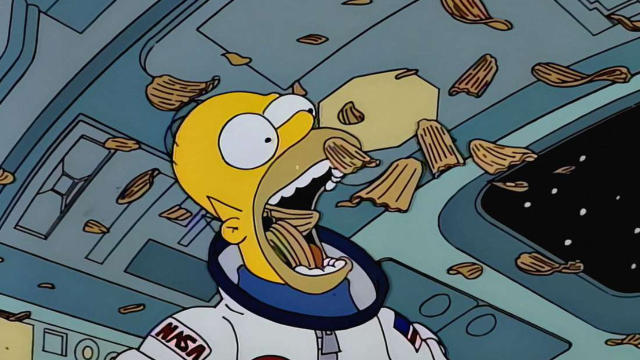Growing stuff in space is going to be essential for a lot of future space missions, but as you likely are aware, space is f*cking hard – the absence of, well, anything, makes it exceptionally difficult to grow plants.
And it’s important that we do start to grow stuff in space, because astronauts’ reliance on shipments of mostly dehydrated foods that fly up to their space stations is expensive. If we were on Mars, shipments would take nine months to travel to and from the planets. It’s just not practical when compared to plants that can spawn extremely quickly and in large quantities from seeds.
So, what’s the most practical thing to grow in space? Well, for protein, it could be a little plant called duckweed.
Duckweed is a plant that grows on the surface of water, typically in swamps or in ponds. It’s consumed in some countries, such as Laos and Thailand, and it can produce 40 per cent more protein than soybeans in the same space. You may also have heard of it being called water lentils.
Because of its ability to grow in large quantities quickly and with a huge amount of protein, it’s the opinion of Australia’s Plants for Space Centre for Excellence (based out of the University of Adelaide) that Duckweed is perfect for interstellar growth.
The group gave a talk at SXSW Sydney 2023, and discussed how we could re-imagine plants to be grown in orbit.
“Vertical farming is brilliant, because in a square metre, you can stack shelves, and that’s what helps us design the plants to grow in them, so you want things which are very low profile,” Associate Professor Jenny Mortimer said, when discussing how to maximise the small spaces they work in.
Mortimer added that Duckweed could be grown to fill in a two-metre squared space every two weeks. However, the team pointed out that there is a potential issue with plants growing too fast, and therefore creating too much oxygen.
It’s also hoped that Duckweed, and similar plants, could be used for other purposes, such as for containers, so that it could be recycled for a whole manner of sustainable things (because, in space, you really only have as much stuff as you’ve brought).
But one of the core challenges with Duckweed is that it’s just not very delicious – or, at least, it’s fairly tasteless. It’s good as a base component, like rice or wheat, but there needs to be flavouring added to it. More flavoursome foods have been grown in space, such as the chillies below, but perhaps astronauts could get the best of both worlds with some tweaks – which is what the Plants for Space Centre is trying to achieve.
It’s hoped by the Plants for Space Centre that, eventually, plants grown in space will be genetically modified to offer peak practicality with what limited resources are available to astronauts.
“We haven’t really released the biology of the plants… We haven’t really until the last year or so,” director of the Plants for Space Centre Matthew Gilliham said.
“Nobody has really invested in breeding specifically for these kinds of conditions, so, altering the metabolism of the plants to benefit from these controlled environments. Maybe taking bits out of the metabolism that it no longer needs.”
The psychological impact of food is also, apparently, something to not be understated. According to the Plants for Space Centre, astronauts lose about 20 per cent of their body weight while in orbit, largely due to not eating as much (because the food is basically dehydrated TV dinners – not the most inspiring stuff). So, having things like strawberries and apples in space would need to be considered.
I can’t wait to see what kinds of plants end up being grown in space regularly for astronauts. Until then, here’s a list of all the plants that have been grown on spacecraft.
Image: Disney
